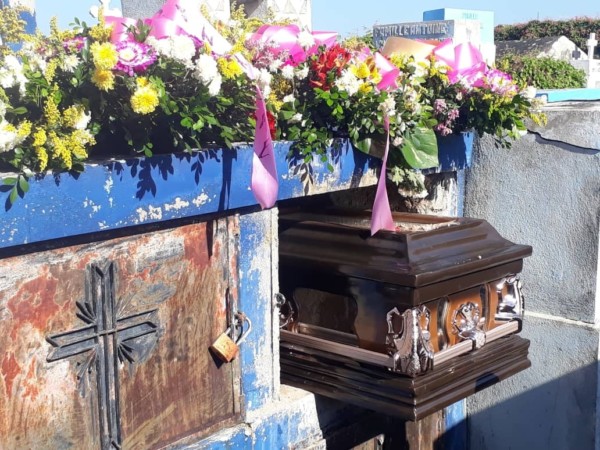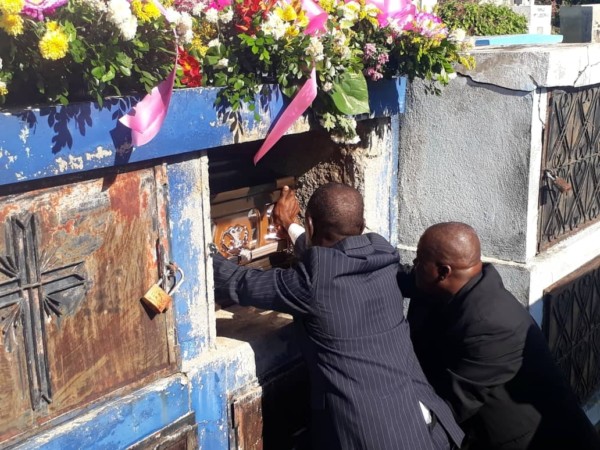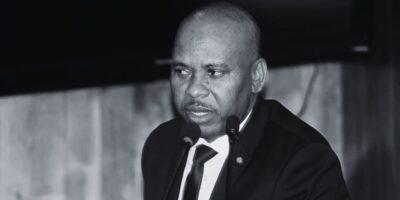Camines Derius’ Death, The Result of a Series of Failures
On Friday March 26th, I followed the funeral procession of Camines Derius to Port-au-Prince’s grand cemetery. He was not a close relative, nor a friend, nor the friend of a friend.
I learned of his story the previous Sunday, when a church leader weighed his words to let the congregation know that one of their own, Camines Derius, who was newly affiliated with the church had just passed away.
So far, nothing surprising as people die every day on this earth.
My interest in the story grew when the leader described the circumstances of his death.
“Camines Derius suffered from diabetes and had to have frequent dialysis sessions. He was on his way to undergo dialysis during the aborted police operation at Village de Dieu on Friday, March 12th. After hours stuck in Martissant listening to the fury of bullets and news of the murder of the policemen, the patient returned home. When two days later, on Sunday March 14th, he went to the hospital to perform the failed dialysis, his case was already too serious. He died the next day on Monday, March 15th”.
“These cases are very common in the country”. According to Doctor Audie Metayer, head of the dialysis unit of the State University of Haiti Hospital (HUEH), too often it is written off as the result of violence.

A Dysfunctional System
The death of Camines Derius is the result of a series of failures in the health system. Unable to cross Martissant, the man who lives in Gressier could well have turned to another hospital in Carrefour or in the Palmes region for dialysis.
The problem is that no hospital, neither in Carrefour, nor in Léogâne, Grand-Goâve, Petit-Goâve and or even as far as Miragoane has a dialysis unit.
“Apart from private hospitals, only the hospital of the State University of Haiti offers dialysis to poorer patients on the Haitian territory” states Dr. Audie Metayer.
No hospital, neither in Carrefour, nor in Léogâne, Grand-Goâve, Petit-Goâve or even as far as Miragoane has a dialysis unit.
According to this doctor who helped establish the dialysis unit of the HUEH, since 1996 until today in 2021, Haiti has only had eight dialysis units.
Four of these units are housed in private hospitals in Port-au-Prince. Another three belonging to the Office d’Assurance Accidents du Travail, Maladie et Maternité (OFATMA) are scattered throughout the cities of Cap-Haitien, Les Cayes and Port-au-Prince. The last one is at the State University of Haiti Hospital.
While the service costs 2,000 gourdes at the HUEH, in the OFATMA units, uninsured patients must pay 6,000 gourdes for dialysis.
Because he could not cross the Martissant area, Camines Derius had to travel south of the country, about 200 km from his home, to seek treatment in the OFATMA facility.

With the low-cost services of the HUEH, the patient suffering from chronic kidney failure in Haiti, must pay an average of 41,000 gourdes per month, or 501,000 gourdes annually in a country where 60% of the population lives on less than $ 2 a day, the extreme poverty line.
The service is even more expensive in private structures. At the Espoir Hospital, for example, a session costs 7,500 gourdes while the patient needs 3 sessions per week, adding up to 22,500 gourdes per week.
In other private hospitals in Port-au-Prince, the Haitian citizen must pay between 200 to 250 US dollars on average two to three times a week for the same service, according to Dr. Audie Metayer.
No statistics
In 2021, the Haitian authorities do not know how many citizens suffer from chronic kidney disease and require dialysis sessions in the country.
However, we know that high blood pressure and diabetes being among the factors that can influence the deterioration of the kidneys, are responsible for 80% of cases of kidney failure cases in the country.
In Haiti, approximately two million citizens are hypertensive and 300,000 suffer from diabetes.
The country has only eight nephrologists able to treat kidneys.
Espoir Hospital, for example, had to delay the opening of its dialysis center to await the end of studies of a doctor training in Europe. This was anonymously revealed to me by a person in charge of this hospital.
Read also: La dialyse ou la mort: l’histoire d’une jeune Haïtienne de 28 ans
Given the magnitude of the problem, the State had to act by opening other centers to serve the population.
The only center made available by the Haitian State requires an operating budget of 40 million gourdes. It only receives 7 million per quarter.
The lack of materials and budget imposes rationing. Instead of the 3 dialysis sessions required each week, the hospital, which only has five functional machines, offers only two to its patients, says Manita Pierrevil. This patient has been living the reality of dialysis for ten years.
Samuel Celiné
Photos: Samuel Celiné







Comments